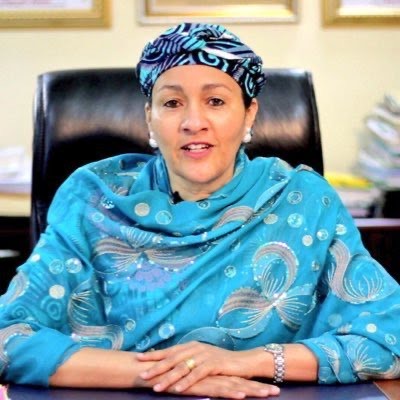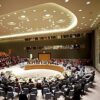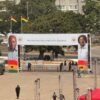The United Nations (UN) Deputy Secretary-General, Amina Mohammed, has called on world leaders to act decisively to alleviate suffering and prevent the further devastation of the enclave, describing the situation in Gaza as “appalling and apocalyptic”
Speaking at a ministerial conference on humanitarian aid for Gaza, convened in Cairo by Egyptian President Abdel Fattah El-Sisi, Mohammed emphasised the urgent need for lifesaving assistance and a plan for the enclave’s long-term recovery.
“We are here to help secure an immediate surge in lifesaving aid for the Palestinian people, ensure preparedness for a potential ceasefire, and begin laying the groundwork for recovery and reconstruction.
“This cannot happen soon enough,” she said, speaking on behalf of the UN Secretary-General António Guterres on Monday.
Deliveries of desperately needed food and other supplies into Gaza have had to be halted through the enclave’s Kerem Shalom crossing because of looting by armed gangs, the UN agency assisting Palestine refugees, UNRWA, has announced.
The agency took the decision on Sunday after it said that lorries carrying food were “all taken” after crossing into Gaza through what is the main aid corridor.
Explaining the move, UNRWA Commissioner-General Philippe Lazzarini said that the route had not been safe “for months”.
On November 16, a large convoy of aid trucks which also crossed through Kerem Shalom was stolen by armed gangs.
Further inside Gaza, aid workers are deeply concerned that malnutrition levels are spiralling.
In Cairo, Mohammed outlined the devastating toll of the conflict: with over 44,000 Palestinian lives reportedly lost, according to the authorities in Gaza, widespread displacement and the collapse of essential services.
Children have been the worst impacted, with nearly 19,000 hospitalised in the past four months alone due to acute malnutrition. Gaza now has the highest number of child amputees per capita globally, with many surgeries conducted without anaesthesia.
“What we are seeing may well amount to the gravest international crimes,” she said.
Mohammed expressed deep concern over the severe restrictions on humanitarian aid to Gaza, describing the flow of supplies as “outrageously” insufficient and unpredictable.
“Aid by exception is neither humane nor effective,” she said, citing challenges such as looting, unexploded ordnance, and destroyed roads.
In November, a large convoy of aid was stolen on the road out of Kerem Shalom: “Humanitarian staff and operations must be guaranteed security.
Access must be granted to all those in need, wherever they are. United Nations premises must remain inviolable at all times,” she said.
Mohammed called for robust support for the entire humanitarian aid system in Gaza, particularly UNRWA, describing it as an irreplaceable lifeline for Palestinians.
“If UNRWA is forced to close, the responsibility of replacing its vital services – and meeting the core needs of Palestinians in Gaza – would rest with Israel as the occupying Power,” she said, adding that there is no alternative to the UNRWA.
“Not the United Nations. Not the international community. But Israel – and Israel alone.”
Reiterating the need for a political solution, Mohammed urged an immediate ceasefire and the unconditional release of hostages.
She also emphasised the urgency of a two-State solution, in line with international law and relevant UN resolutions, with Israel and Palestine living side-by-side in peace and security, with Jerusalem as the capital of both States.
“The catastrophe in Gaza is nothing short of a complete breakdown of our common humanity,” she said “The nightmare must stop.”




























